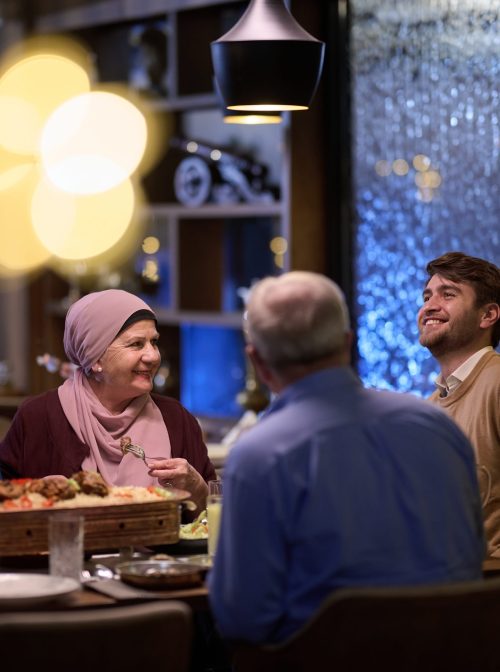There’s a common misconception about Ramadan in the U.S. that Muslims started arriving in the U.S. in the late 1960s as immigration was reformed. Therefore, Muslims and Ramadan are only recent additions to the American fabric. This story couldn’t be further from the truth.
Historians know that Muslims were among the earliest arrivals from Europe and North Africa in the mid-1500s. “One of these explorers, Mustafa Zemmouri (also known as Estevanico), was sold by the Portuguese into slavery in 1522. While enslaved by Spanish conquistador Andrés Dorantes de Carranza, Estevanico became one of the first Africans to set foot on the North American continent. He explored Florida and the Gulf Coast, eventually traveling as far west as New Mexico.”
It wasn’t just Zemmouri who was in the Americas. Nearly a ⅓ of enslaved peoples were Muslim, along with Yoruba and adherents of other religious and spiritual traditions forcibly brought to North America.
Historical accounts of Muslims building communities here from the 1500s make it easy to say that Ramadan has been practiced here for nearly 500 years. Furthermore, given the multiple religious and indigenous identities of free and enslaved peoples in the Americas in the 1500s, those iftars and suhoor likely included people from various religious communities.
This typical American myth isn’t relegated to history. It is happening right now. Anti-immigrant, anti-Jewish, and anti-Muslim narratives and discrimination are rising.
America is a potluck nation where it may all come together. The hope for America outside of the magnificent words of the Constitution and Declaration of Independence is often best captured and realized in the fantastic songs of its great folk singers, Woodie Guthrie, Pete Seeger, Bob Dylan, and Bruce Springsteen. It is a dream, a hope, a possibility.
Guthrie wrote his famous “This Land Was Made for You and Me” to respond to the anguish felt by the downtrodden, whom Irving Berlin called the “real people.” Guthrie writes “I am out to sing songs that will prove to you that this is your world and that if it has hit you pretty hard and knocked you for a dozen loops, no matter what color, what size you are, how you are built, I am out to sing the songs that make you take pride in yourself and in your work.” What a fantastic reality, what an excellent reflection! Reflecting on the song, Springsteen said, “that this song…gets right to the heart to the promise of what our country was supposed to be “…” it is easy to let the best version of yourself slip away.”
Nonetheless, there is the best version of America, a hope and a dream. We have yet to always live up to this dream but keep working towards it together.
Dr. King wrote, “This is the great new problem of mankind. We have inherited … a great ‘world house’ in which we have to live together — black and white, Easterner and Westerner, Gentile and Jew, Catholic and Protestant, Muslim and Hindu … Because we can never again live apart, we must learn somehow to live with each other in peace.”
We pray that these interfaith Ramadan iftars will become a part of this hope and vision. For breakfast together, we will share a vision and hope for a common humanity, that there is something that someone else must teach us. We will not address all our challenges, differences, and injustices in one meal together. Still, we will deepen our relationships and trust to tackle hard conversations and share our joy when we overcome challenges. We pray people will keep coming together and knocking at each other’s door, especially when it gets complicated.
For these reasons, we must be purposeful in sharing our experiences, both contemporary and historical, of our multifaith, multicultural potluck tables where everyone is treated with dignity and respect to reclaim and honor the people who have gone before us and the next generations.
In this effort, we’re beginning a Ramadan story campaign. The campaign aims to share interfaith experiences during Ramadan to help tell the true American story. It is a story where people share food with their neighbors, invite Jewish, Agnostic, and Buddhist friends to iftars, where Christians (and others) contribute funds to provide dates, and stories where joy and grief are shared between new and old friends.
Join our Ramadan Storytelling Campaign
- Share your photos of interfaith iftars on social media and tag Interfaith America (@interfaithusa) and Shoulder to Shoulder (@s2Scampaign)
- Email us at [email protected]
- Leave a comment on our social media posts with your interfaith iftar stories!
All contest entries will be selected for a raffle draw, and we will pick three winners. Each winner can choose a $50 Visa gift card, or we will donate on their behalf to a selected charity.
Ramadan Mubarak, and Assalam Alaikum (May God’s Peace be with You)
Stories from across the country
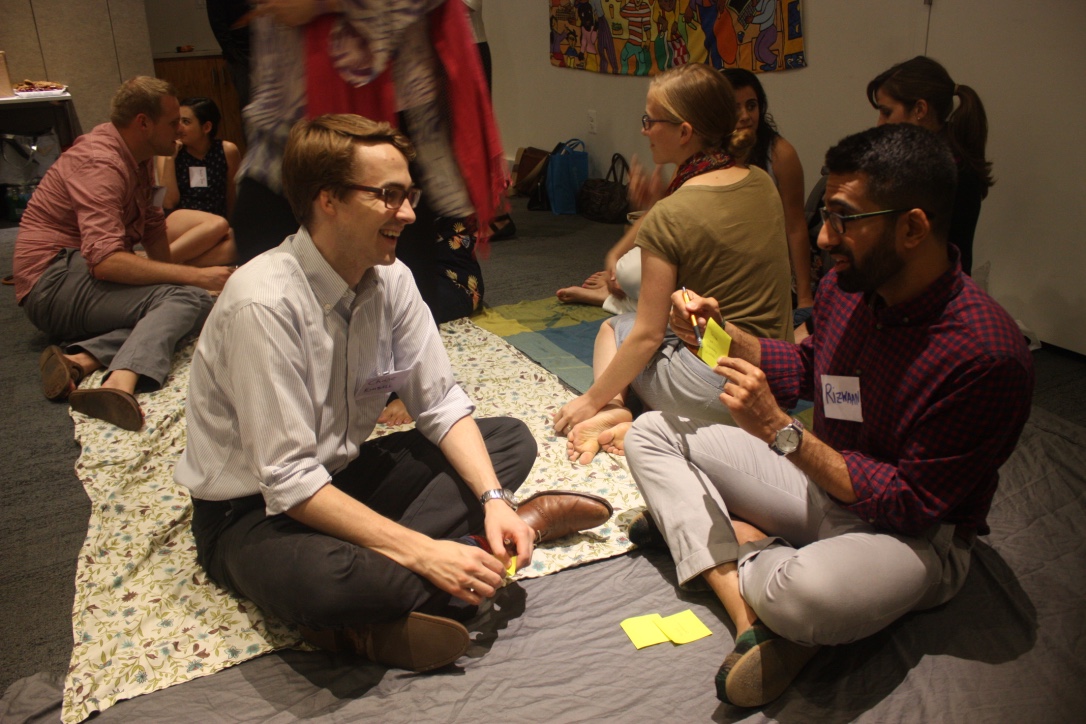
My favorite memory from this interfaith Iftar was sitting on the ground with everyone and having small group conversations. I also loved that this Iftar was grassroots organized by a small group of friends from different faith traditions. It was also all young people, so there was a fresh, eager spirit of welcome and community. It was such a great experience!
– Miranda H. Silver Spring, Maryland, Humanist
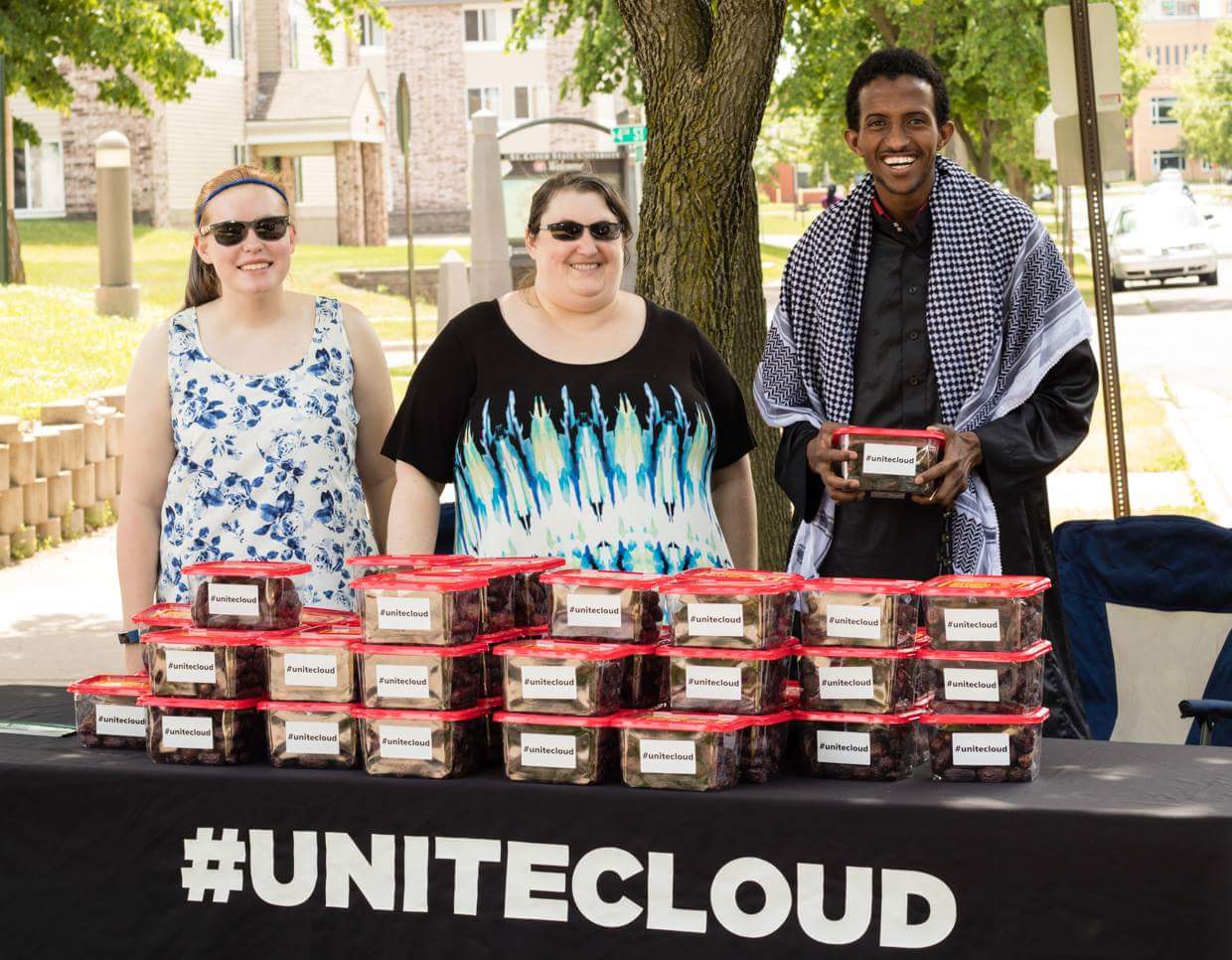
Each year before Ramadan, folks in our Central Minnesota community donate money to purchase $2,000 of dates. Volunteers pass the dates to Muslim families and individuals at local mosques, wishing them Ramadan Mubarak! This project is called the Ramadan Date Project.
– Natalie Copeland, St Cloud, MN, Christian
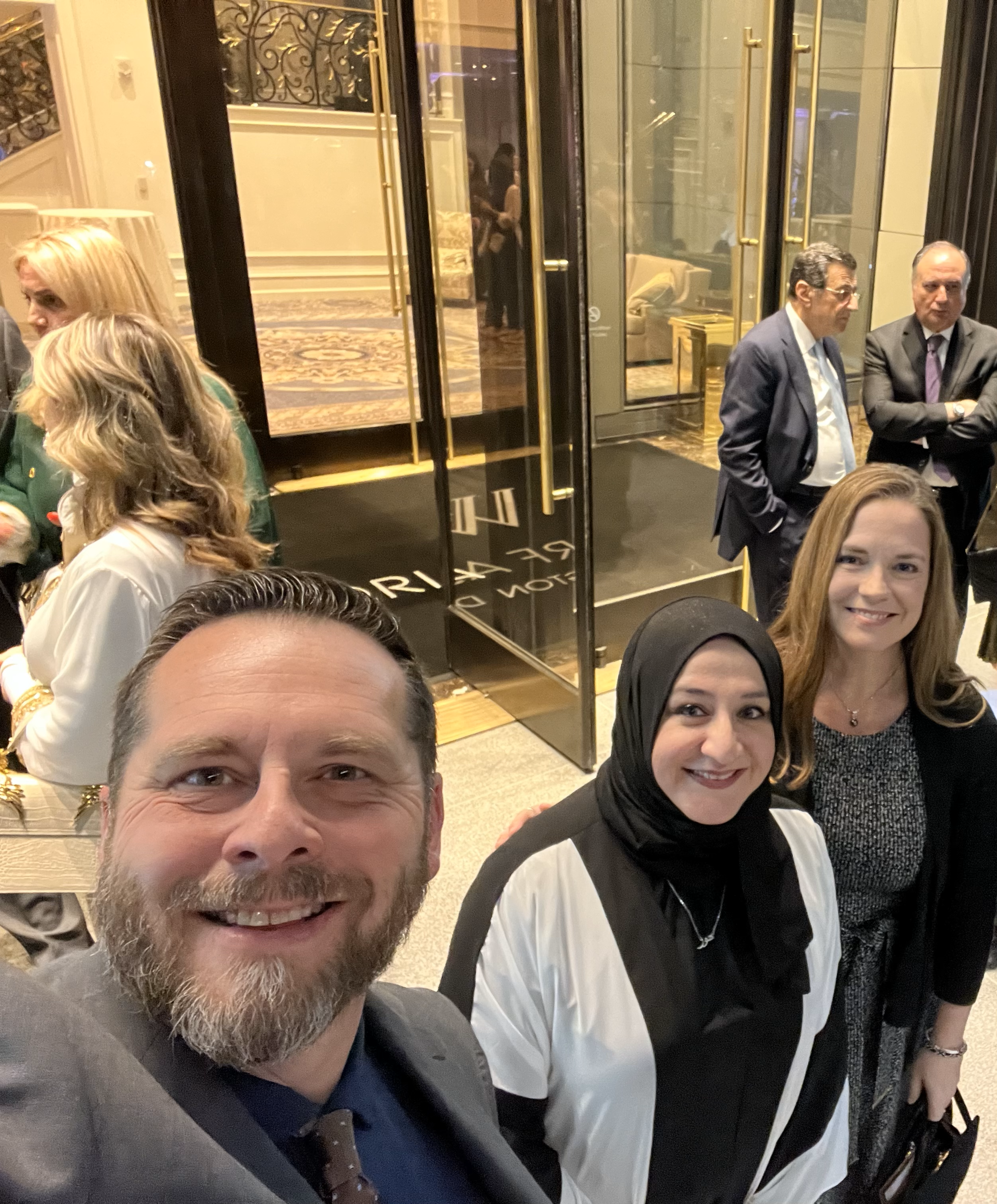
It's so wonderful when your Christian pastor friend and his wife attend Iftars with you and understand the importance of our holiday. Spending time with us during breaking the fast is much more unique and celebratory!
– Hurunnessa F. Sterling, Virginia, Muslim
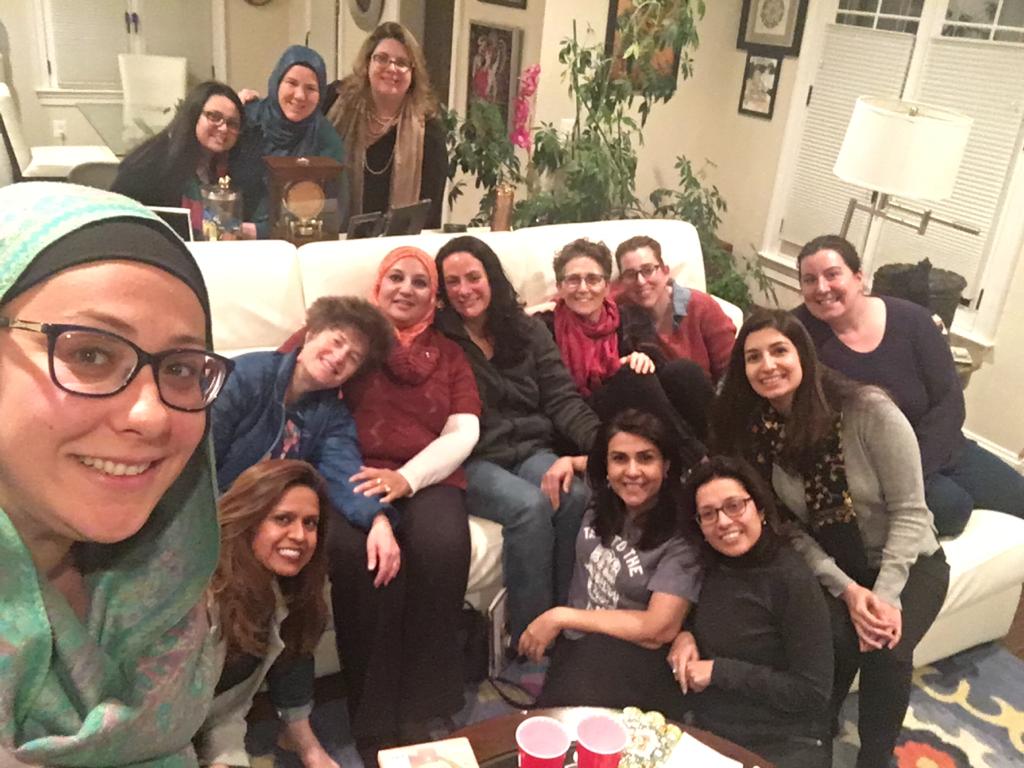
The first interfaith Iftar I went to was the first time I co-led the then-new D.C. chapter of the Sisterhood of Salaam Shalom. One of our Muslim sisters invited our chapter to her house for an Iftar, and I remember the table groaning with delicious food when we entered her front door. Never having been to an Iftar before, I wasn't sure what to expect. However, observing the meaningful Ramadan rituals and sharing a meal helped create a sense of openness and welcome, although we were all strangers to each other.
– Symi R, Washington, D.C., Jewish
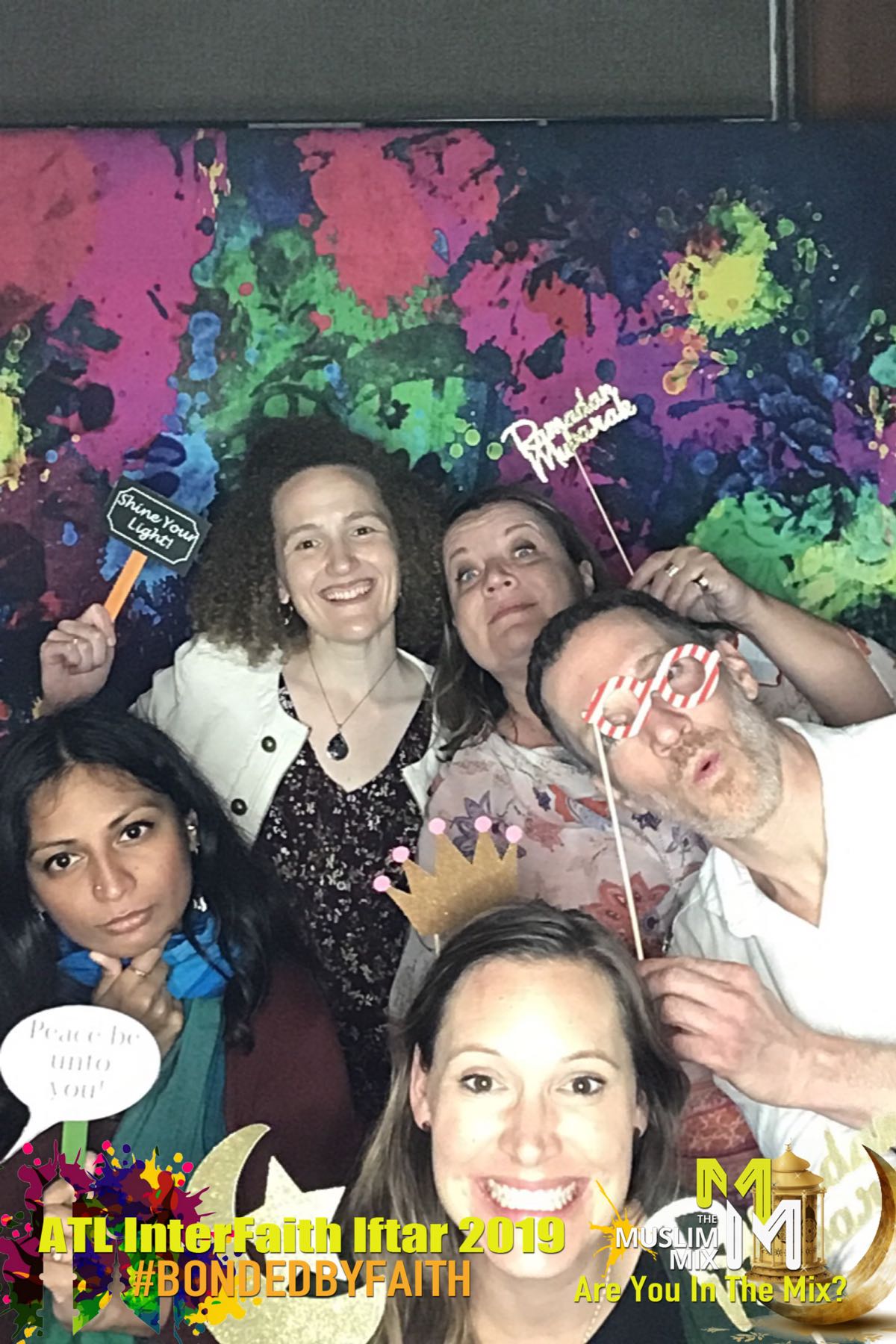
In 2019, the Shoulder-to-Shoulder Campaign staff decided to take a road trip to 5 cities in the U.S., visiting interfaith iftars of every shape and size. Our goal was to document all the ways people are working together to build communities where everyone is treated with dignity and respect and where interfaith iftars are working to counter anti-Muslim discrimination. This was a fun photo booth at an iftar we attended in Atlanta, Georgia.
– Cassandra L. Washington, D.C. Christian
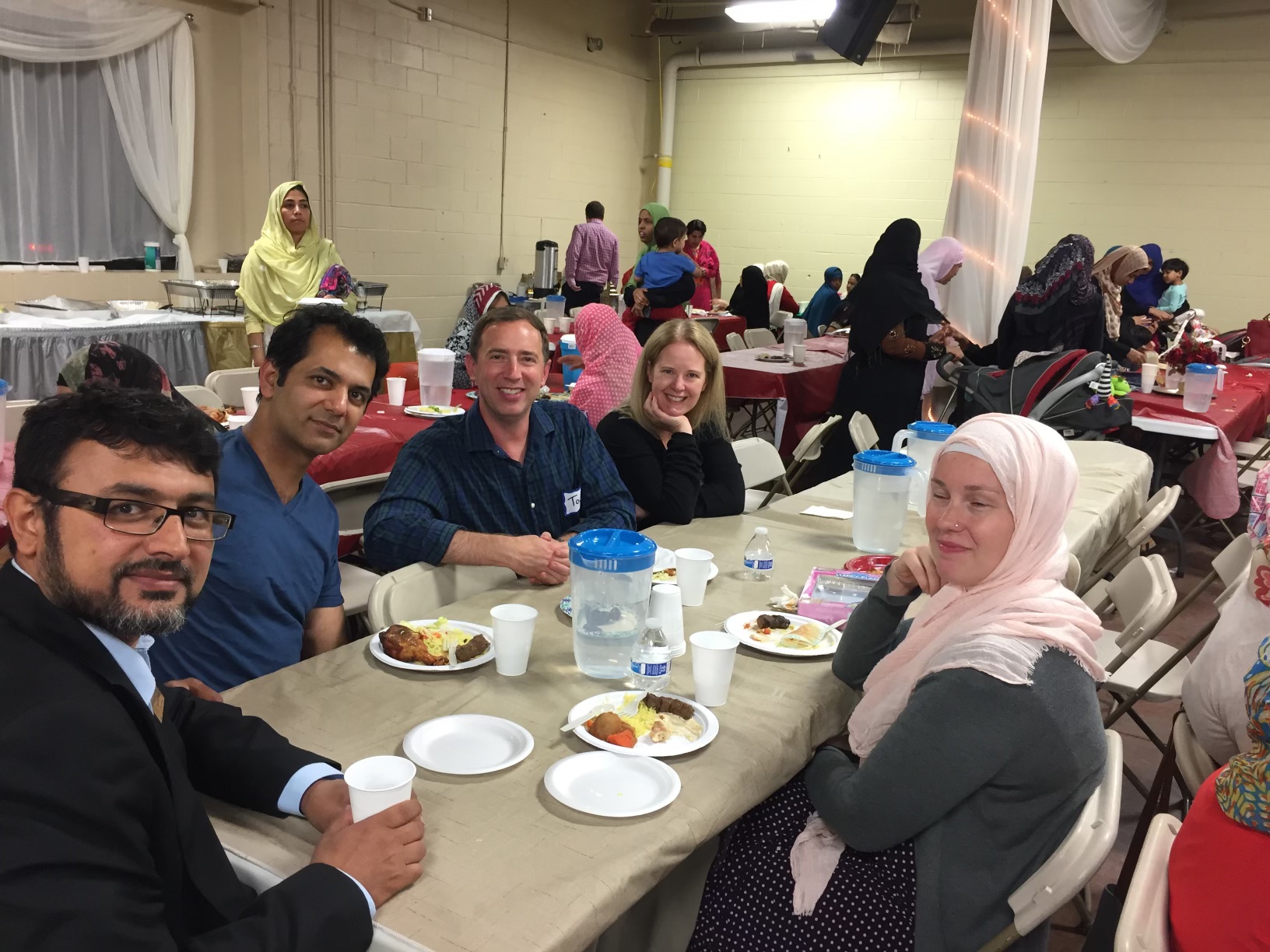
Last Ramadan, I attended the Iftar dinner at the Northwest Islamic Cultural Center (NWICC). I was surprised at how amazingly familiar the experience was. I was raised Christian and am even the daughter of a pastor. NWICC's program for the evening featured all the children of the mosque – little girls and boys who created artwork, school-aged kids talking about the meaning of Ramadan, and older kids presenting what their Muslim faith means to them. It felt like the best Christmas pageant ever! The kids were beautiful, the hospitality was warm, and the food was terrific!I look forward to visiting again THIS Ramadan!
– Jen K. Christian Minneapolis, MN
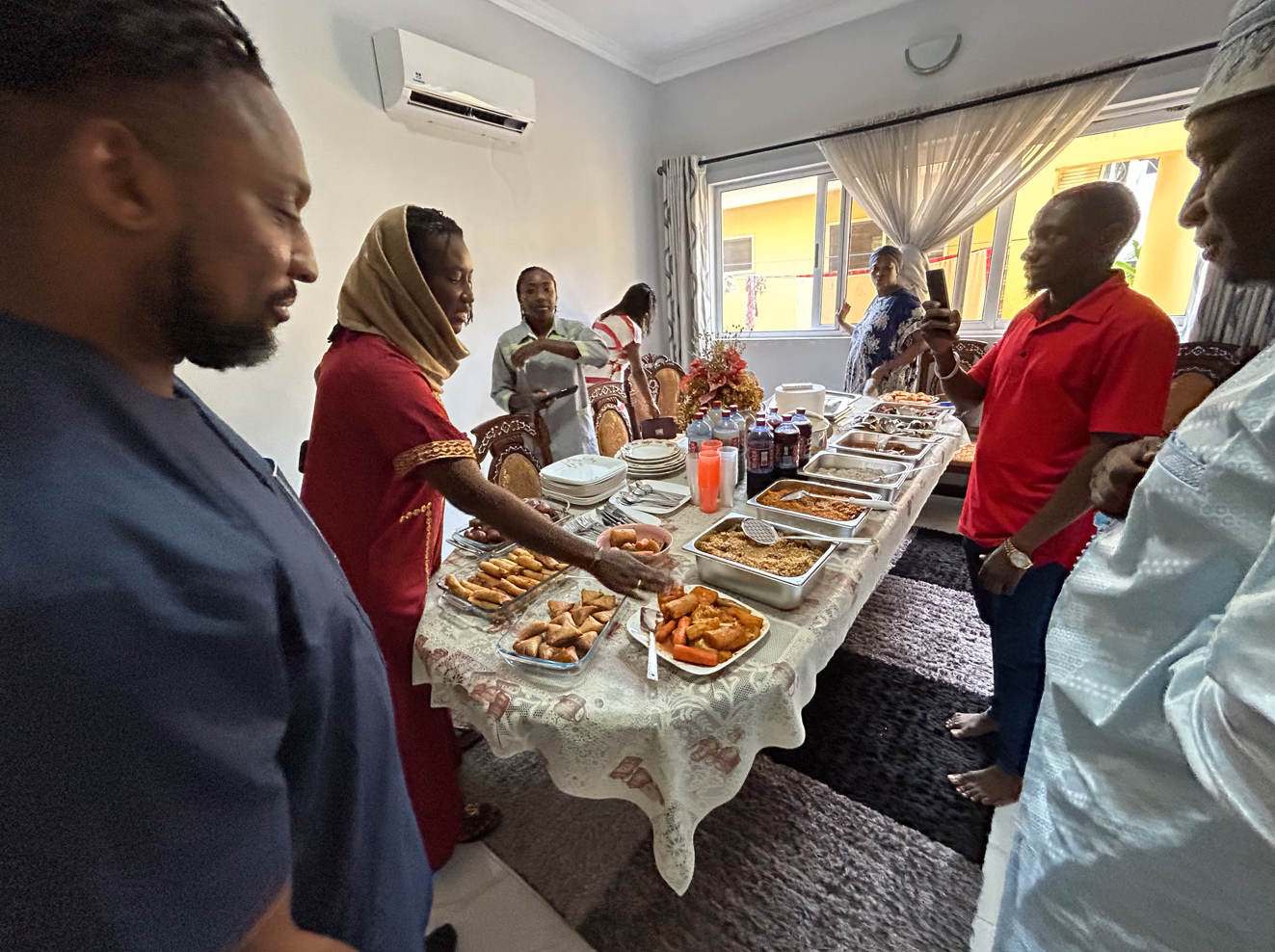
Last year, during Ramadan, I was in West Africa, documenting interreligious peace-building efforts between Christians and Muslims. My friend Emmanuel, a Nigerian American Christian, and I visited the grand mosque in Tamale, Ghana. We interviewed the Sheikh there and community members affected by the violence in their districts. Despite the challenging topics, everyone we encountered was welcoming and gracious. We returned to Accra just in time for Eid Al Fitr. Emmanuel's Muslim wife, Binta, invited me to join her Gambian family at a celebration to mark the holiday. It was a deliciously immersive experience with - again - warm hospitality and some of the best food I have eaten in the region, spicy Jollof and sweet bissap, and, of course, a healthy dose of animated family discussion. I was honored by the invitation and grateful I could return the favor just a week later by bringing Emmanuel to a similar family-style gathering to celebrate the Baha'i holy day Ridvan while we were visiting Niamey, Niger. This is the bounty of interreligious collaboration. When we open the doors and extend our hand in friendship, we all celebrate the unique aspects of our traditions and find common ground.
– Jack G. Takoma Park, MD, Baha’i
Rev. Cassandra Lawrence is the Director of Strategic Communications at the Shoulder-to-Shoulder Campaign, a multifaith coalition countering anti-Muslim discrimination to equip and engage religious communities beyond the Muslim community to counter anti-Muslim discrimination and violence. She is a provisional Deacon in the United Methodist Church.
Arshan Khalid heads Islamic Society of North America’s (ISNA) DC Office of Interfaith and Community Alliances. He holds a Master’s in Divinity from the University of Chicago Divinity School.
